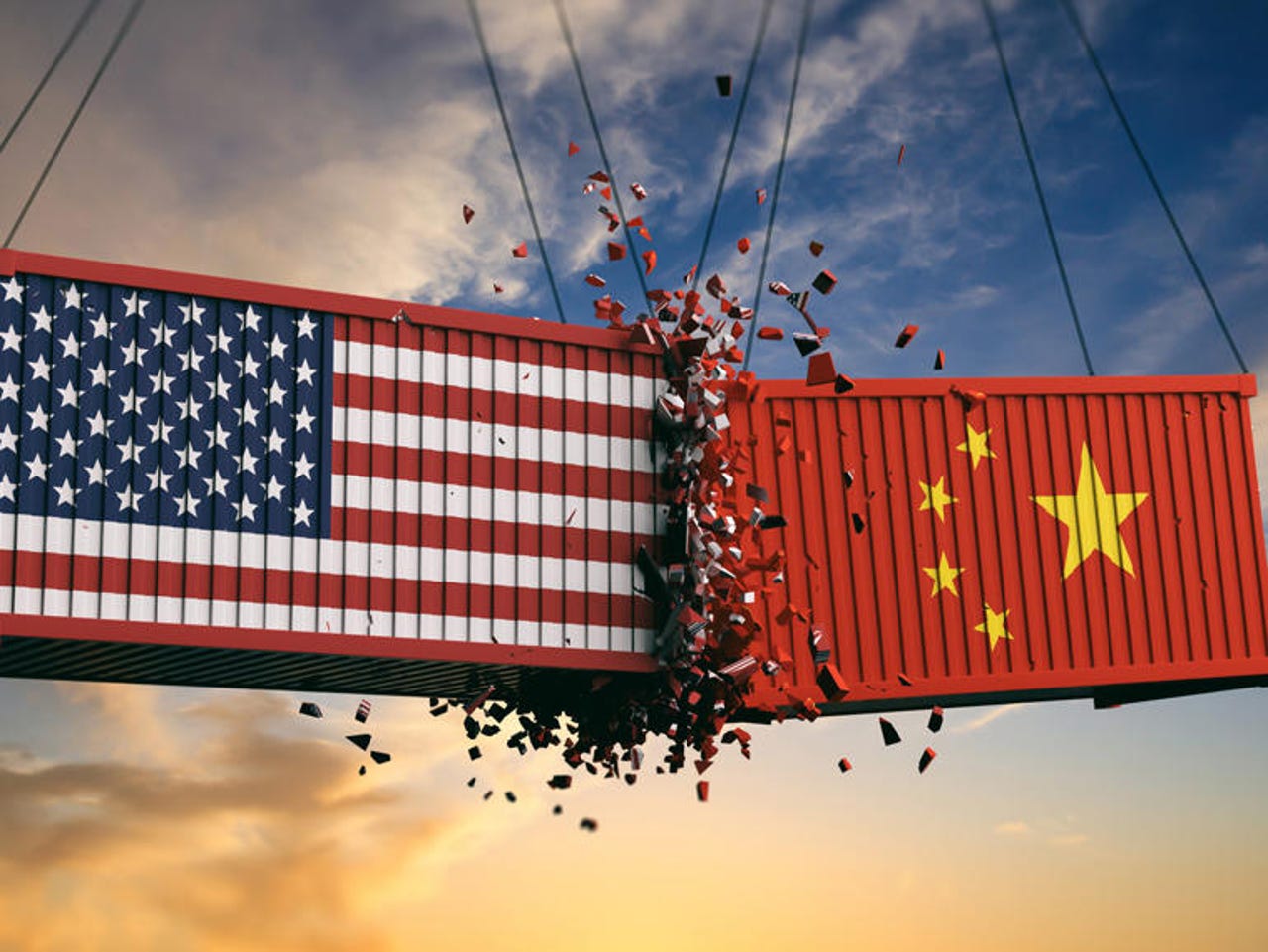US-China tariffs hit Taiwanese tech industry

More technology firms based in Taiwan are moving manufacturing out of mainland China and onto the island.
Their decisions follow the latest round of US tariffs on China imports, which would raise tariffs on many tech imports to 25%.
Tech firms and producers on the self-ruled island entered China -- which claims sovereignty over Taiwan -- in the early 90s due to its market size, licences, tax breaks, the large quantity of graduates, as well as other factors. Although some have branched manufacturing to elsewhere in Asia, there is still a large presence of Taiwan-based firms in China today.
A mix of companies at Computex, that cater to US customers, told ZDNet that they have begun to feel the pinch of higher costs from US tariff increases. Now, they're trying to come up with solutions to mitigate the effects of having their production in China.
Some, such as wireless network equipment manufacturer SparkLAN communications, and memory device manufacturer Kingbox Electronic Technology, have already begun moving portions of their Chinese production to Taiwan since last year.
Kingbox general manager Bennis Chang, for example, said the US is not the firm's main market, but it has decided on a 20% reduction from its Chinese production lines.
Others that previously held out are also beginning their moves across the strait.
Hon Hai/Foxconn Technology Group Chairman Terry Gou told CommonWealth Magazinein an interview last month that his firm would be relocating some of its Tianjin and Shenzen production lines to Kaoshiung in southern Taiwan.
Andrew Mo, who is in charge of Fuga Electronics Co, which manufactures memory devices, told ZDNet that the costs were too high for US exports with the latest tariffs. He said the firm would be reducing its China production by 23% and had already begun the transition.
Industry Liaison Manager at National Taiwan University in Taipei, Alex Wen, told ZDNet that the moves would be particularly difficult for smaller tech firms.
ZDNet understands that powerline technology equipment maker GigaFast, which uses a supplier in mainland China and three suppliers in Taiwan, has some US clients that have accepted the tariffs, while others have requested the company move production to Taiwan, which would increase time and costs. The firm will in July begin to move some of its mainland China production to its existing Taiwan suppliers to accommodate individual client needs.
Not all that are affected by the increasing tariffs have decided to make changes quite yet, however.
Two sources at MSI told ZDNet that the firm is still having internal discussions about reducing its China production in light of the latest tariffs. A spokesperson for MSI told ZDNet by email that "this topic is still under discussion currently".
"However, for bringing better products to both end users and our channel partners, we'll make a proper decision for sure."
"We'll bring this to public once it has been confirmed," he added.
Winnie King, a political scientist at University of Bristol in the United Kingdom studying cross-strait relations, told ZDNet in an email conversation that she wasn't surprised by the the supply chain changes. Moves are more likely if a firm's main market isn't in China, or in the US, she said.
"Since the 1990s, Taiwan's economy has been overly focused on the PRC [People's Republic of China]," she said. "Concerns of a dependency are clear, and they [Taiwan-based tech firms] will be hit hard by a strong slow down in China's economy -- certainly helped by a trade war with the US."
She added that while the 1995 and 1996 missile crisis and heightening tensions across the strait haven't had a major effect on tech supply chain movement, domestic policies encouraging development of local industry such as "Made in China 2025" have created increased competition for Taiwan-based firms.
"In truth, the need to diversify Taiwan's production bases is necessary," she said.
Other Taiwanese firms, meanwhile, have been forced by the tariffs to move production from China to Taiwan to accommodate US clients, while many other firms -- including larger ones -- are mulling their options going forward.
Updated at 8:19am AEST, June 5, 2019: Clarified companies reducing production in China.
Related Coverage
Taiwan profits from America's trade war with China
President Donald Trump's threatened 25% tariff is prompting Taiwanese companies that opened factories in China to make PCs, smartphones, and tablets for America's tech giants to move some production back to Taiwan. They're also looking for cheaper labour in other Asian countries and in India.
Huawei files motion against US declaring law as 'unconstitutional'
The Chinese tech giant is looking to have the law thrown out.
Huawei compares US trade restrictions against it to the Berlin Wall
Earlier this week, CEO and founder Ren Zhengfei did not think European companies would follow the footsteps of its United States counterparts.
Trump: Huawei block could be solved in China trade deal
The ban on US sales to Huawei could be resolved if China does a trade deal with the US.
How Trump's trade war with China could impact the US tech industry (TechRepublic)
Alex Feinberg, Director of Partnerships at OKcoin, explains why the global trade war could hamper American innovation.